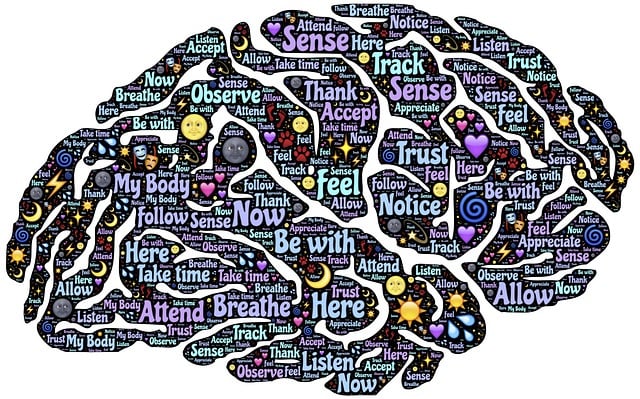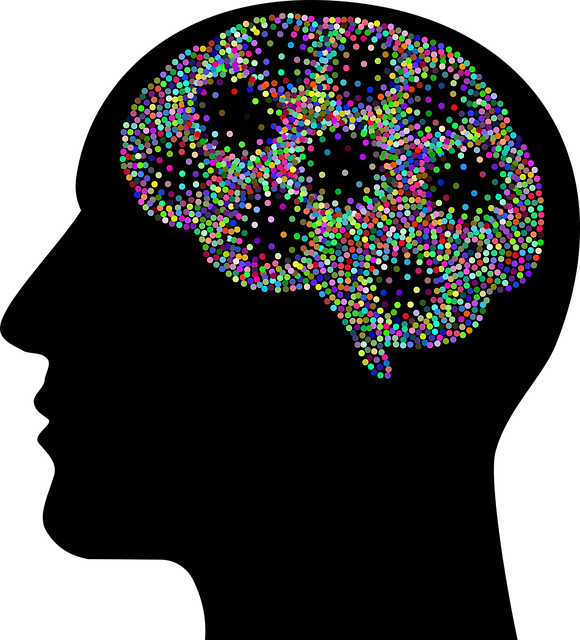Understanding Mental Health Data through various sources like government records, healthcare reports, and online therapy platforms is vital for improving community mental wellness in Colorado Springs. This data-driven approach enables professionals to identify areas of need and implement tailored interventions, such as Mental Wellness Coaching Programs. By analyzing trends and patterns using statistical modeling and machine learning, therapists can develop personalized therapy plans, enhance care quality, and contribute to a positive impact on mental health outcomes for individuals seeking online therapy in Colorado Springs. As technology evolves with advanced analytics, ethical considerations like patient privacy and data bias must be addressed for innovative yet responsible solutions in this popular therapy hub.
Mental health data analysis is a powerful tool for understanding and improving therapy services, especially in the context of growing online therapy platforms in Colorado Springs. This article explores the process of collecting, analyzing, and interpreting mental health data from various sources to gain valuable insights. We discuss techniques for unearthing trends and patterns that can inform therapy strategies. Furthermore, we delve into the ethical considerations surrounding data privacy and explore future directions for enhancing online therapy services through advanced analysis methods.
- Understanding Mental Health Data: Collection and Sources
- Data Analysis Techniques for Insights
- Interpreting Results: Implications for Therapy in Colorado Springs Online Therapy Services
- Ethical Considerations and Future Directions in Mental Health Data Analysis
Understanding Mental Health Data: Collection and Sources

Understanding Mental Health Data is a pivotal step in addressing and improving community mental wellness, especially in areas like Colorado Springs where access to online therapy has gained prominence. The collection of such data involves various sources, each offering unique insights into the mental health landscape. These include government records, healthcare provider reports, surveys conducted by research institutions, and increasingly, digital platforms providing services like online therapy. By gathering information from these diverse channels, researchers and professionals can paint a comprehensive picture of mental health trends within communities, identifying areas in need of support and tailoring interventions accordingly.
For instance, compassion cultivation practices, which have seen success in various settings, could be better understood through data analysis, informing the development of Mental Wellness Coaching Programs. Community Outreach Program Implementation, too, can benefit from these insights, ensuring resources are directed towards where they are most needed. This holistic approach to mental health management leverages data as a tool to foster healthier communities, making online therapy in Colorado Springs and similar locations not just accessible but also effective.
Data Analysis Techniques for Insights

In the realm of mental health, data analysis plays a pivotal role in unearthing valuable insights that can shape effective treatment strategies and interventions. For individuals seeking support through Colorado Springs online therapy, understanding the intricacies of data analysis is essential for personalized care. Techniques such as statistical modeling and machine learning algorithms enable therapists to identify patterns within patient data, facilitating more accurate diagnoses and tailored therapy plans. By employing these methods, professionals in the field can gain profound knowledge about various aspects of mental wellness, including mood management and crisis intervention guidance.
The process involves meticulous examination of collected data from diverse sources, such as therapy sessions, surveys, and self-reported metrics. Through sophisticated analysis, therapists can uncover trends and correlations that might otherwise remain hidden. For instance, a Mental Wellness Podcast Series Production could leverage these insights to create content that resonates with listeners’ needs, promoting mental health awareness and offering practical crisis intervention guidance. This data-driven approach ensures that every patient receives the most appropriate care, ultimately enhancing overall mental wellness outcomes.
Interpreting Results: Implications for Therapy in Colorado Springs Online Therapy Services

Interpretation of data from mental health assessments is a pivotal step in tailoring effective therapy plans for clients in Colorado Springs online therapy services. By carefully analyzing trends and patterns within the data, therapists can gain valuable insights into individual client needs and adjust their approaches accordingly. This process involves not only identifying primary diagnoses but also understanding the nuances of each case, including co-occurring disorders or exacerbating factors.
For instance, a risk assessment for mental health professionals might reveal heightened rates of depression among young adults in Colorado Springs, highlighting the need for targeted interventions. This information can guide therapists in developing specialized programs focused on depression prevention and crisis intervention guidance tailored to this demographic. Such data-driven decisions not only enhance the quality of care but also contribute to the broader mental health landscape, ensuring services are responsive to the unique challenges faced by individuals seeking therapy in this region.
Ethical Considerations and Future Directions in Mental Health Data Analysis

As mental health data analysis advances, ethical considerations become increasingly paramount. Ensuring patient privacy and confidentiality is non-negotiable, requiring robust security measures for data storage and transmission. This is especially crucial in cities like Colorado Springs where online therapy services are gaining popularity. Moreover, researchers must balance the potential benefits of data sharing with the risk of re-identification, adhering to strict anonymization protocols. Another ethical dilemma lies in data bias; algorithms trained on skewed datasets may perpetuate or even amplify existing societal biases related to mental health. To address this, diverse and representative data collection is essential, encompassing various demographic groups and experiences.
Looking ahead, the future of mental health data analysis holds immense potential for personalized interventions. Integrating advanced analytics with artificial intelligence could enable more precise diagnosis and treatment recommendations, tailored to individual needs. For instance, online therapy platforms in Colorado Springs can leverage these tools to offer adaptive, real-time support for mood management and inner strength development. Additionally, natural language processing could analyze textual data from therapy sessions to identify emerging patterns and triggers, aiding clinicians in proactive conflict resolution techniques. This evolution necessitates ongoing dialogue between mental health professionals, researchers, policymakers, and the public to establish guidelines that promote both innovation and ethical integrity in this critical domain.
Mental health data analysis is a powerful tool that can significantly enhance therapy services, especially in the realm of Colorado Springs online therapy. By understanding and interpreting this data, therapists can tailor their approach, leading to more effective treatment outcomes. The ethical considerations discussed here ensure responsible practices, fostering a brighter future for mental healthcare. This analysis not only improves individual therapies but also has the potential to revolutionize access to care across the state, offering hope and support to those in need.














